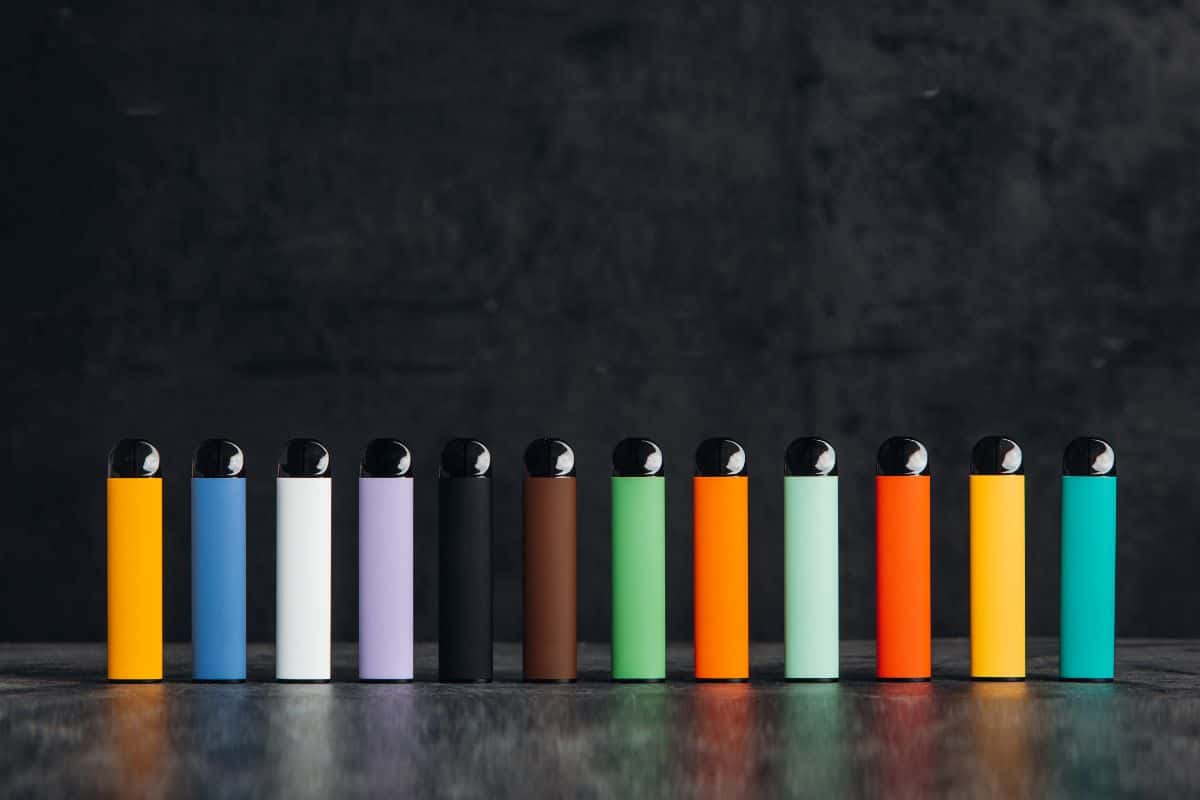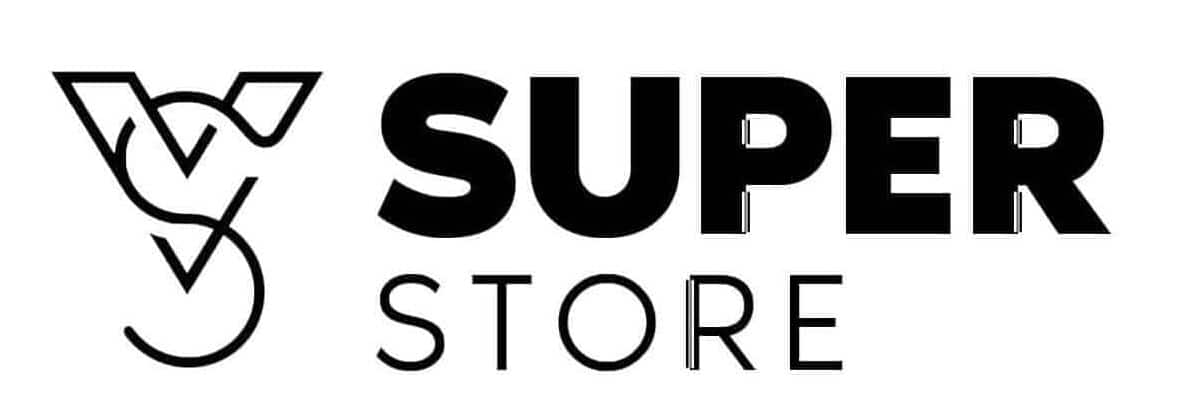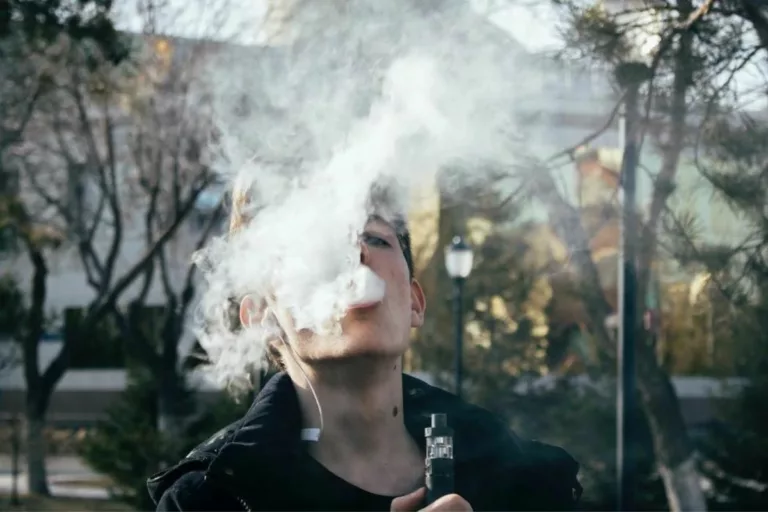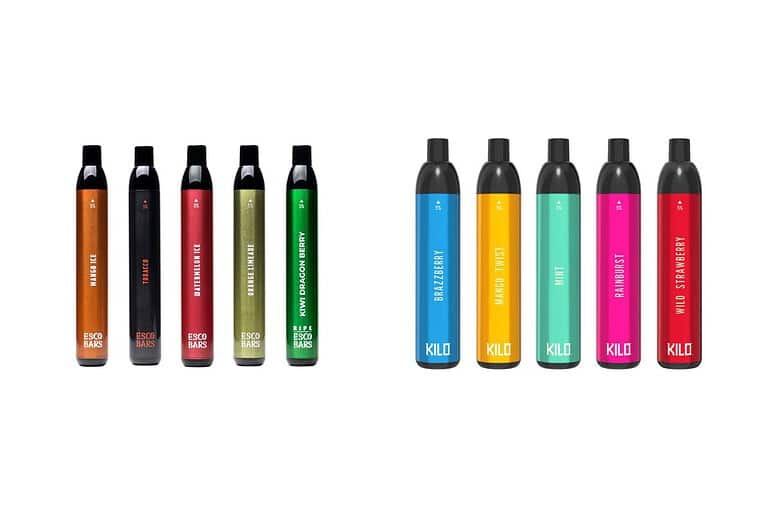Are Elf Bars Banned in California? A Concise Update
In recent years, the popularity of e-cigarettes and vape products has skyrocketed, leading to increased scrutiny from health organizations and regulatory bodies. One product that has gained attention is Elf Bars, a disposable e-cigarette brand known for its variety of flavors. California, as a state that holds the health and well-being of its residents in high regard, has taken significant steps to regulate the sales and distribution of these products.
In response to the rising concerns surrounding these products, California passed a ban on flavored tobacco products. The ban went into effect on January 1, 2023, significantly impacting the sales of Elf Bars and other flavored e-cigarettes within the state. The Food and Drug Administration (FDA) has also played a crucial role in evaluating the safety and compliance of these products, highlighting concerns specific to Elf Bars and other e-cigarette brands.
Table of Contents
Key Takeaways
- California’s flavored tobacco ban directly affects sales of Elf Bars within the state
- The FDA’s role in regulating e-cigarettes addresses concerns about safety and compliance
- The situation highlights the ongoing debate around e-cigarette regulation in the United States
NEW CUSTOMER DISCOUNT
Save 15%
15% OFF YOUR ENTIRE ORDER FOR NEW CUSTOMERS USE CODE WELCOME15!

Elf Bars: What Are They?
Elf Bars are a popular brand of disposable e-cigarettes that have gained significant attention in recent times. These e-cigarettes are known for their sleek design, ease of use, and a wide variety of flavors. Designed as a convenient alternative to traditional smoking, Elf Bars offer a nicotine-rich experience without the need for charging or refilling.
Disposable e-cigarettes like Elf Bars typically contain a pre-filled e-liquid reservoir, a small battery, and a heating coil. Once the e-liquid is vaporized and inhaled, the device is discarded. This makes them particularly appealing to individuals seeking a hassle-free smoking experience without the commitment of a reusable vaping device.
In terms of sale and regulations, the landscape for disposable e-cigarettes varies across states and countries. As of now, there is no information indicating that Elf Bars are specifically banned in California. However, California has imposed restrictions on the sale and marketing of flavored tobacco products, which may impact the availability of Elf Bars with flavored e-liquid. Individuals should familiarize themselves with the specific regulations in their area to ensure compliance while using or selling disposable e-cigarettes.
It is important to note that while disposable e-cigarettes like Elf Bars may be seen by some as a more convenient or less harmful alternative to traditional cigarettes, they still contain nicotine and other potentially harmful substances. Users should remain aware of the risks associated with e-cigarette use and make informed decisions about their personal health and well-being.

California Flavored Tobacco Ban
In recent years, California has taken significant steps to protect public health by introducing legislation to restrict the sale of flavored tobacco products within the state. The California Flavored Tobacco Ban aims to reduce tobacco use, particularly among young people, by limiting the availability of flavored e-cigarettes, cigars, and cigarettes.
The ban covers a wide range of flavors, including fruit, chocolate, and mint, that are commonly used in e-cigarettes and other tobacco products to make them more appealing to consumers, especially inexperienced users like teens. Eliminating these flavors is expected to discourage young people from initiating tobacco use and reduce overall tobacco consumption.
One of the products affected by this ban is the popular Elf Bar disposable e-cigarette. As a flavored vaping device, Elf Bars are subject to the regulations under the California Flavored Tobacco Ban. Retailers are no longer allowed to sell them within the state, making it more difficult for consumers to obtain them. However, it is essential to note that the ban does not make it illegal for Californians to possess or use these flavored products; it only restricts their retail availability.
The California Flavored Tobacco Ban is part of a broader effort to address the public health concerns associated with tobacco use, as well as the rapid increase in e-cigarette and vaping popularity among youth. By implementing these restrictions, California demonstrates its commitment to protecting the health of its residents, particularly young people who are often targeted by tobacco companies and are more vulnerable to the addictive nature of nicotine.
Other states may also consider implementing similar bans in the future, as the dangers of flavored tobacco products continue to be a significant public health concern and require ongoing attention to protect communities nationwide.
Food and Drug Administration’s Role
The Food and Drug Administration (FDA) plays a crucial role in ensuring the safety of food, drugs, and various consumer products in the United States. They establish regulations and standards that manufacturers must adhere to in order to uphold the health and safety of consumers.
One of the primary methods the FDA employs to enforce these regulations is by issuing warning letters to companies that are found to be non-compliant with the established guidelines. These letters serve as a formal notification to the company and provide them with an opportunity to promptly address any discrepancies, mitigating potential harm to consumers.
When it comes to evaluating products like elf bars, the FDA carefully assesses their ingredients, manufacturing processes, and labeling to ensure that they are both safe and accurately represented. This involves a thorough investigation into the product’s composition, potential benefits, and any potential risks associated with its use.

In the case of elf bars, if they were found to contain any harmful substances or if their labeling was found to be misleading, the FDA would take appropriate action to protect consumers. This may include issuing a warning letter, mandating a product recall, or even pursuing legal action against the manufacturer.
To maintain the highest levels of safety and accurate information for consumers, the FDA continuously monitors the market and works closely with manufacturers to ensure ongoing compliance with all relevant regulations. This proactive approach ensures that products sold on the market, including elf bars, remain safe and beneficial for all consumers.
As a trusted regulatory body, the FDA aims to provide a balanced, transparent, and unwavering commitment to upholding the well-being of the public, while also fostering innovation and emerging technologies within the industry. Their commitment to neutrality and evidence-based decision-making is crucial in delivering consumer confidence and maintaining the integrity of the products available in the marketplace.
Concerns Particular to Elf Bars
Elf Bars have recently drawn attention due to their potential impact on public health, especially among teenagers and the nation’s youth. These flavored disposable products are available in attractive flavors such as cotton candy and menthol, which could more easily entice young people to try them out.
A major concern is that these flavors may mask the harsh taste of nicotine, making them more appealing to teenagers who are often first-time users and may not be aware of the risks associated with nicotine consumption. Additionally, the availability of Elf Bars in vape shops and other retail outlets can make them easily accessible to the nation’s youth.

Another factor contributing to the concerns surrounding Elf Bars is their marketing and packaging. Bright colors and trendy designs could further amplify their attractiveness to teenagers, making it more likely for them to experiment with these products.
Moreover, flavored disposable products like Elf Bars often contain high levels of nicotine. This is particularly concerning as studies have shown that exposure to nicotine during adolescence can have long-term cognitive and behavioral implications, as well as increased addiction potential.
Given these concerns, discussions about banning Elf Bars in California have emerged. While no specific ban has been implemented as of now, the state may consider implementing regulations targeting these products to prevent their sale to minors and help mitigate the risks associated with youth vaping.
In summary, concerns associated with Elf Bars in California revolve around their enticing flavors, appealing marketing, and high nicotine content, all of which could potentially increase the likelihood of use among teenagers and the nation’s youth. Efforts to regulate or ban their sale could play a part in protecting the health and well-being of young people in the state.
Sales and Distribution of Elf Bars in the US
Elf Bars, a brand of disposable e-cigarettes, have become increasingly popular in the United States. These products are usually distributed through retailers, convenience stores, and vape shops, catering to the adult market. While their sales have seen a significant uptick, regulatory measures concerning e-cigarettes have varied from state to state.
In California, for example, the state government has enforced strict regulations on the sales and distribution of e-cigarettes. The state has one of the highest tobacco tax rates in the country, and comprehensive smoking bans have been implemented in workplaces, restaurants, and bars ^. These measures might suggest a more stringent approach to e-cigarette sales like Elf Bars in the state.
On the other hand, e-cigarettes continue to be available in other states, where regulations are less stringent. In these cases, Elf Bars can be bought at various retailers and specialized vape shops. It’s important for consumers to be aware of the local laws and regulations surrounding the sales, purchase, and use of e-cigarettes in their respective states.
| Sales Channels |
| – Retailers |
| – Convenience stores |
| – Vape shops |
| Target Market |
| – Adults |
As more information becomes available about the potential health risks associated with e-cigarettes, it is crucial for both consumers and retailers to stay informed on the latest developments and regulatory measures. While Elf Bars may not be explicitly banned in California, the state’s strict regulations on e-cigarettes reflect a cautious approach towards these products. As a result, individuals interested in purchasing or using Elf Bars should keep local laws and guidelines in mind.
Alternative E-Cigarette Brands under Scrutiny
In recent times, the e-cigarette market has seen the rise of several alternative brands, causing increasing concern among health officials and regulators. One such brand, Elf Bars, offers disposable vapes containing up to 3,500 puffs, which has led to an investigation into their sale to teenagers.
| Juul, a well-known e-cigarette brand, has faced similar criticism over the past few years. Known for their compact design and use of flavored nicotine pods, they have faced backlash regarding their appeal to minors. As a result, Juul has ended support for many of its flavored pods in an attempt to curb underage consumption. |
| Another popular brand, Puff Bar, has been under scrutiny for marketing their flavored disposable vapes to younger audiences. Despite the Food and Drug Administration’s ban on flavored e-cigarettes in 2020, Puff Bar has found a loophole by marketing their products as disposable rather than reusable, allowing them to continue selling flavored vapes. |
| Reynolds American, the company behind popular tobacco brands like Camel and Newport, has also ventured into the e-cigarette market with their Vuse brand, though they have faced compliance challenges with the FDA over certain flavored e-cigarette products. |
There is emerging concern regarding these alternative e-cigarette brands and their marketing tactics, which often target younger consumers. Further regulation may be necessary to ensure that these products do not contribute to increased nicotine addiction among youth. California has already taken steps towards more stringent e-cigarette regulations, such as banning the sale of flavored tobacco products in 2020.
It is crucial for consumers and regulators to remain vigilant and ensure that alternative e-cigarette brands do not compromise public health in their pursuit of market share.
Proposed Actions against Non-Compliant E-Cigarettes
In light of the recent findings about Elf Bars being sold to minors and containing a significantly higher number of puffs than allowed, authorities and regulatory agencies in California are taking action to combat the sale and distribution of non-compliant e-cigarettes, including Elf Bars.
Compliance and enforcement action plays a significant role in ensuring the e-cigarette industry follows the established regulations. Regulatory agencies are implementing stricter measures to identify stores and distribution centers that engage in the sale and distribution of non-compliant products. These measures will include regular checks and audits, targeting both brick-and-mortar stores and online platforms.

As part of the enforcement action, California officials are considering imposing penalties on retailers found selling banned vaping devices. Penalties may include fines, suspension or revocation of licenses, and even criminal charges in repeated or severe cases. The aim is to enhance retailer and distributor accountability by imposing stringent consequences for non-compliance.
To control the distribution of Elf Bars and other non-compliant e-cigarettes, agencies are planning to enhance monitoring and regulation of e-cigarette importers, wholesalers, and delivery channels. These strategies target the source and include limiting the entry of such products into the state and their eventual reach to the marketplace.
In addition to the enforcement at the distribution level, regulators are also focusing on educating consumers about the potential dangers of non-compliant e-cigarettes, encouraging them to make informed choices and report any suspicious sales activities to the authorities.
Regarding retail sale, a crucial action being contemplated is better training for retail employees to verify customers’ age and understand the regulations governing e-cigarette sales. Retailers are encouraged to implement internal controls to prevent underage sales and foster a culture of compliance within their workforce.
In summary, California is adopting a comprehensive approach to tackle the issue of non-compliant e-cigarettes, taking decisive enforcement actions at different levels of the industry, including compliance and enforcement activities, distribution, marketplace control, and the regulation of retail sales.
Health Risks Associated with E-Cigarettes
E-cigarettes have gained popularity in recent years, but they are not without potential health risks. One concern is the exposure to liquid nicotine found in e-cigarettes. The U.S. poison centers have reported a surge in cases related to nicotine poisoning, some of which have been linked to e-cigarettes. Liquid nicotine can be ingested, inhaled, or even absorbed through the skin, leading to a variety of adverse effects.
Nicotine poisoning can result in symptoms ranging from mild to severe. In less severe cases, individuals might experience nausea, vomiting, or diarrhea. More serious cases, however, can lead to brain injury, seizures, and even death. The risk of nicotine poisoning is particularly concerning for young children who may accidentally come into contact with e-cigarettes or liquid nicotine.
The use of e-cigarettes also poses risks to brain development, especially among adolescents. Nicotine is known to have adverse effects on the developing brain, and research indicates that e-cigarette use can lead to addiction and cognitive impairment in young users. This is particularly troubling given the increasing popularity of e-cigarettes among teenagers.
In addition to the concerns related to nicotine exposure and brain development, e-cigarettes have been associated with other health risks. Studies have shown that e-cigarette users may be exposed to potentially harmful levels of toxicants and carcinogens present in the aerosols produced by these devices.
In summary, e-cigarettes may pose several health risks, including nicotine poisoning, brain injury, and exposure to harmful substances. It is essential for individuals to be aware of these potential dangers, and for policymakers and health officials to closely monitor e-cigarette use and its impact on public health.
Reactions from Other States and Municipalities
While California has taken progressive steps towards tobacco regulation, other states and municipalities have also shown different reactions to the issue of smoking bans in public places. In New York, smoking bans have been implemented in various places, leading to a notable decline in exposure to second-hand smoke. The state’s stringent policies have paved the way for other states to adopt similar approaches.
| New Jersey, for instance, has followed suit in enacting smoking restrictions in public spaces. This has led to an increase in smoke-free environments like parks, beaches, and other outdoor areas. Massachusetts has also taken steps to limit tobacco consumption in public areas by implementing strict smoking bans and raising the legal age to purchase cigarettes to 21 years old. |
| Rhode Island, on the other hand, has applied a more moderate approach to smoking restrictions. The state implements several bans on smoking in public spaces but has not yet reached the same extent of regulation as California. |
In terms of legislation, the Supreme Court has ruled on various occasions regarding smoking restrictions. In one instance, the court upheld a local smoking ban, citing that the municipality had the authority to protect public health and welfare. This ruling further showcases the importance of state and local governments in tackling smoking-related issues.
Overall, responses from other states and municipalities show a range of perspectives and regulations addressing smoking bans. The combined efforts of these jurisdictions have contributed to a shift in public opinion, creating a more health-conscious environment across the U.S.
Looking Ahead: The Future of E-Cigarette Regulation
While elf bars currently seem to be allowed in California, the situation could change as regulations surrounding e-cigarettes evolve. The U.S Congress and governing bodies are paying closer attention to the potential health implications related to e-cigarette usage, and new regulations may be introduced in the coming years.
One key area of focus is the FDA applications for e-cigarette products. As part of the process, manufacturers are required to submit a Premarket Tobacco Product Application (PMTA) to prove that their products meet the necessary public health standards. Furthermore, products that receive marketing authorization from the FDA will be permitted to be sold in the U.S market, while the others will face enforcement action. This could impact the availability of various e-cigarette products, including elf bars.
The FDA has been continuously updating its regulations to promote public health protection. For instance, the agency has been working on reducing youth access to tobacco products, which has already led to raising the minimum legal sales age to 21 in several states, including California1.
Moreover, there have been changes restricting the promotion of e-cigarette products, primarily targeting minors. The FDA and other regulatory authorities consider tightening the marketing and advertising rules to prevent any unethical marketing strategies from reaching vulnerable age groups. This would pose a direct impact on the launch and promotion of any e-cigarette products in the future, including elf bars, if they fail to align with new marketing regulations.
Browse popular vape collections:
- Nicotine Disposables
- 2000 Puff Nicotine Disposable Vapes
- 2500 Puff Nicotine Disposable Vapes
- 5000 Puff Nicotine Disposable Vapes
- 6000 Puff Disposable Nicotine Vapes
- 7000 Puff Nicotine Disposable Vapes
- Disposable Vape Deals
- Best Vape Brands
- 8000 Puff Nicotine Disposable Vapes
- 9000 Puff Nicotine Disposable Vapes
- 5% Nicotine Disposable Vapes
- Rechargeable Nicotine Disposable Vapes
- Vape Coils
- Dab Wax Pens
- Dab Wax Pen Battery
- Yocan Vapes
- Vape Cases
In conclusion, while elf bars are not currently banned in California, the future of e-cigarette regulation is dynamic and uncertain. All stakeholders, including manufacturers, distributors, and consumers, must keep themselves updated regarding any changes in the regulations to stay compliant and safeguard public health.
Frequently Asked Questions
Are flavored vapes prohibited in California?
Yes, flavored vapes are currently prohibited in California. As of January 1, 2021, the sale of most flavored tobacco products, including flavored vapes, is banned in the state. This ban aims to reduce the appeal and availability of these products to young people and protect public health.
When will vape products face restrictions in California?
Vape products have faced restrictions in California since June 9, 2016, when the state raised the minimum legal sales age for vaping products from 18 to 21. After that, additional restrictions came into effect gradually, such as the prohibition of flavored vapes on January 1, 2021.
Is it legal to purchase vape juice online in California in 2023?
Yes, purchasing vape juice online is legal in California, as long as the product is not flavored and the buyer is over 21 years of age. However, it is essential to verify the legality of specific products and ensure compliance with any local restrictions. Online vendors may be required to implement age verification processes to prevent sales to underage customers.
Which vape products are banned in California?
California bans the sale of flavored vaping products, including those with fruit, candy, and mint flavors. This ban applies to all types of flavored e-liquids and cartridges, regardless of their nicotine content. Unflavored and tobacco-flavored vaping products are not affected by the ban and remain legal for sale to individuals over the age of 21.
Are there safety concerns with Elf Bars?
While there are no specific safety concerns associated with Elf Bars, there has been growing concern over the safety of disposable vaping devices in general. Users should be cautious about the quality and ingredients of vaping products, as some may contain potentially harmful chemicals. It’s essential to consider the health risks associated with vaping before using any vaping device, including Elf Bars.
What led to the banning of Elf Bars?
The banning of Elf Bars would presumably follow the same reasons behind the prohibition of flavored vapes in California, aimed at reducing the appeal and availability of these products to young people. While Elf Bars as a specific brand may not have been the target, the general restrictions on flavored vapes have caused them to fall under the same regulations.
Footnotes
- https://www.hopkinsmedicine.org/health/wellness-and-prevention/5-truths-you-need-to-know-about-vaping
- https://www.cdc.gov/tobacco/basic_information/e-cigarettes/pdfs/ecigarette-or-vaping-products-visual-dictionary-508.pdf
- https://www.collinsdictionary.com/submission/24952/elf+bar
- https://en.wikipedia.org/wiki/Electronic_cigarette
- https://www.forbes.com/health/body/health-effects-e-cigarettes/?_ga=2.21817723.1724371659.1681286262-1699932226.1672148734







